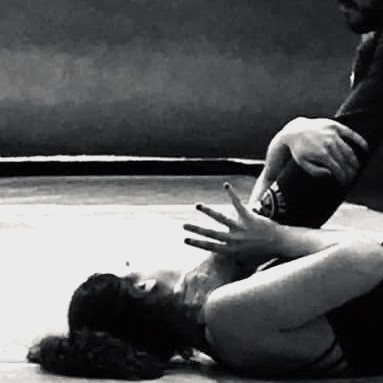Relationship between Breathing and Relaxation in Combat:
Inseparable from self-defense techniques, mastering breathing is essential for achieving and controlling relaxation during combat. Deep, slow breathing also strongly influences the control of our emotions, which in turn affects our relaxation.
- A contracted muscle consumes energy and quickly becomes exhausted. Blood circulation to the muscle is hindered, despite its demand for increased blood flow. Consequently, this blood is not available to other muscles or organs that may require it to fulfill their roles.
- A relaxed muscle can “recover.” Blood circulates as needed, allowing it to be mobilized effectively and sustainably if necessary.
Solutions:
Training Environment:
Avoid creating a tense atmosphere around practice. Self-defense practitioners often become overly focused on achieving specific goals, such as:
- Performance targets
- Success in real-time techniques
- Execution and success of techniques during sparring
These contexts and demands lead to muscular tension, stress, and approximation, which are the worst enemies of muscular relaxation during combat.
Training Focus on Respiratory Sensations:
To approach a state of relaxation, it is essential to train oneself to concentrate and recognize when an increase in heart rate leads to decreased efficiency in movements or maneuvers. Common manifestations include:
- Shortness of breath
- Increasing heart rate
- Loss of fine motor skills
- Compensatory aggressiveness
- Increased errors
Training involves focusing on these sensations over short phases to delay the onset of symptoms caused by tension. Practice should occur at a comfortable pace until a sense of ease and complete control is achieved, gradually increasing speed thereafter.
Overtraining:
Beware of overtraining, which can manifest in athletes as profound fatigue, lack of motivation to train, appetite loss, insomnia, and anxiety. While consistency is crucial, there are limits to how much one should train. Individuals should set goals that align with their physical and psychological limits to avoid detrimental effects on muscular relaxation.
(1) Adrenaline rapidly mobilizes the entire body to face danger or extraordinary situations. Its secretion triggers immediate mechanical and physiological responses: increased heart rate and force of beats, elevated blood pressure, enhanced oxygenation of muscles and brain, and dilation of bronchioles.
(2) Precursor neurotransmitter to adrenaline, with metabolic functions.
Do you wish to read the previous part?
Click Here


